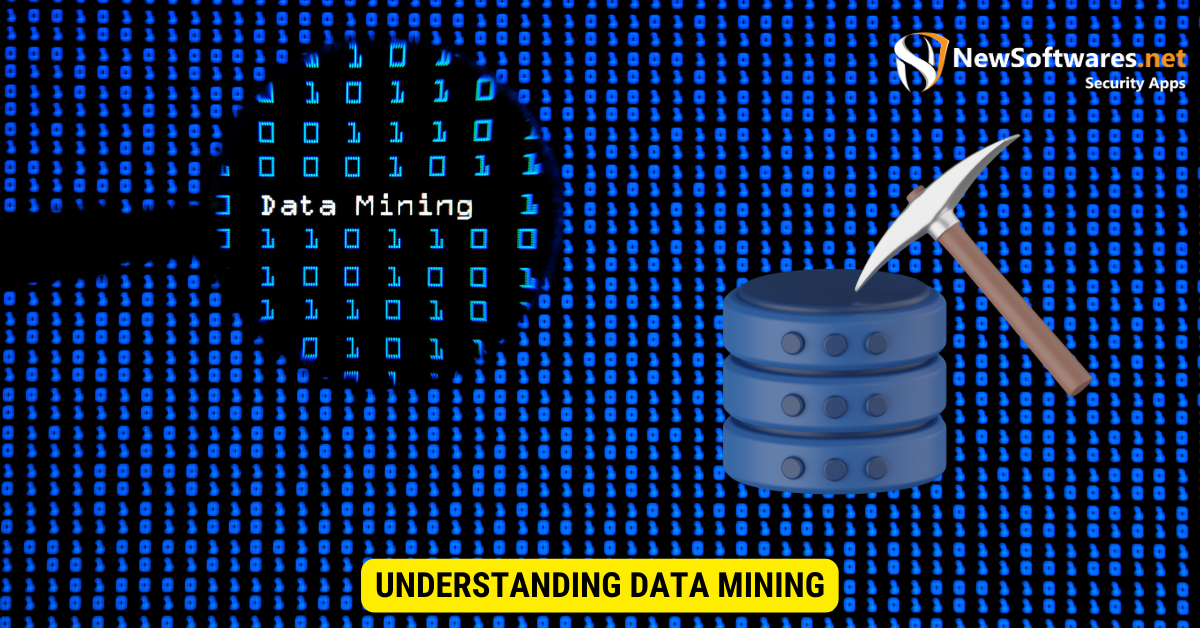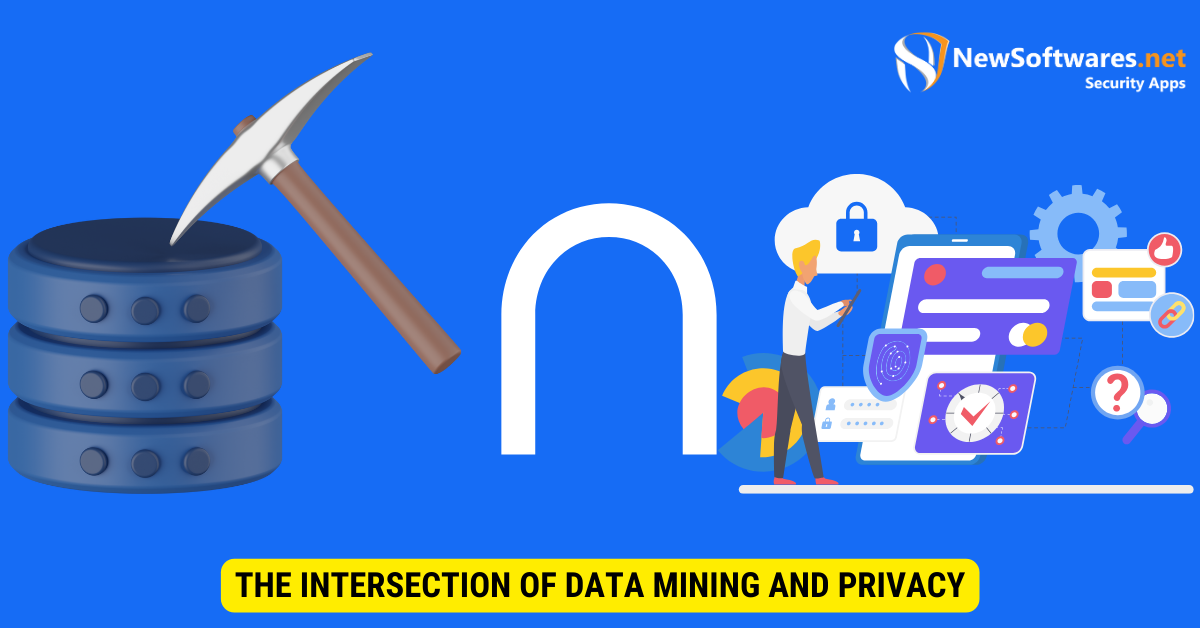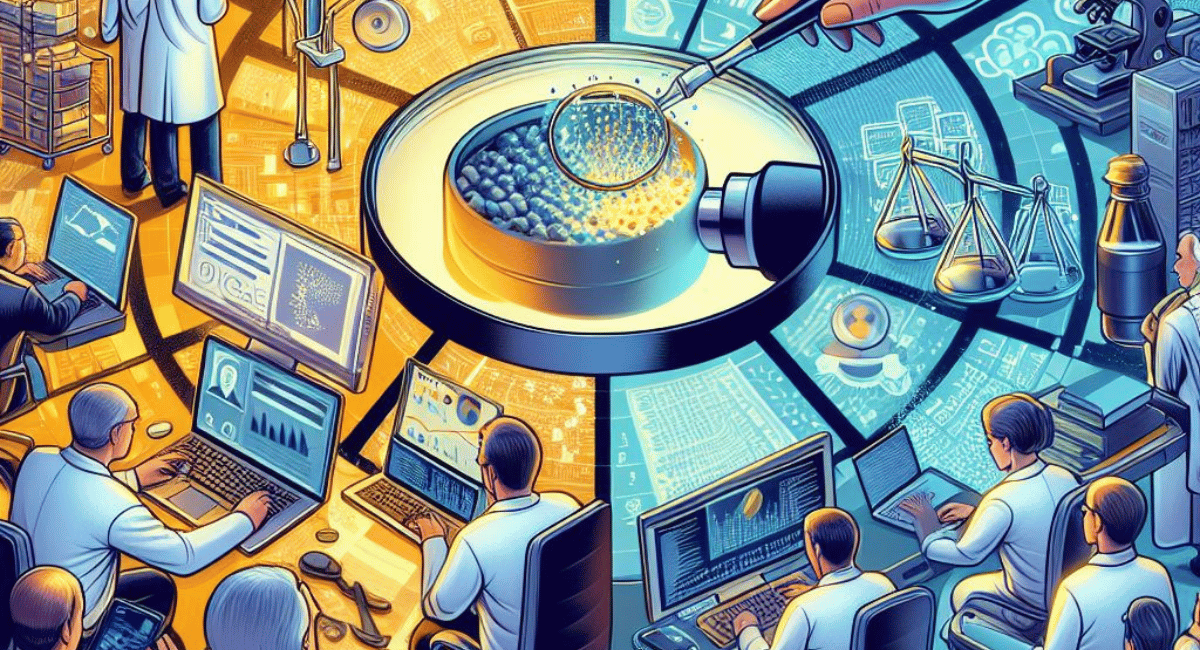Data mining isn’t a violation; its misuse can lead to privacy concerns.
Data mining has become an integral part of our increasingly digitized world. It involves the extraction and analysis of large sets of data to discover patterns, relationships, and insights that can help businesses make informed decisions and recover their operations. However, as data mining techniques become more sophisticated and pervasive, concerns about privacy violations are being raised. As the amount and depth of personal data being collected and analyzed increase, it is important to examine the intersection of data mining and privacy, the legal perspectives, ethical considerations, and potential safeguards to mitigate privacy concerns.
Understanding Data Mining

Data mining is a process that aims to extract valuable information from a vast amount of data. By employing various statistical, mathematical, and machine learning algorithms, analysts can identify patterns, predict future outcomes, and uncover hidden insights that can be used to improve business practices and enhance decision-making. The ultimate goal of data mining is to facilitate data-driven decision-making and gain a competitive advantage.
Data mining has become an important tool in today’s data-driven world. With the exponential growth of data, organizations face the challenge of extracting meaningful insights from vast datasets. Data mining solves this challenge by enabling analysts to sift through mountains of data to uncover valuable patterns and relationships that may not be apparent at first glance.
Definition and Purpose of Data Mining
Data mining involves exploring and analyzing large datasets to identify meaningful patterns and relationships. Data mining aims to uncover valuable insights, generate predictions, and make informed decisions based on empirical evidence. It enables businesses to discover hidden patterns, identify trends, and gain a profound understanding of consumer behavior.
For example, a retail company can use data mining techniques to analyze customer purchase history and identify patterns in buying behavior. By understanding these patterns, the company can tailor its marketing strategies to target specific customer segments, offer personalized recommendations, and increase sales.
The Process of Data Mining
Data mining involves several key steps. First, data is collected from various sources, including customer records, online transactions, social media, and sensor data. This data can come in various formats, such as structured data (e.g., databases) or unstructured data (e.g., text documents, images).
Once the data is collected, it needs to be preprocessed and transformed into a suitable format for analysis. This step includes cleaning the data, removing any irregularities or errors, and transforming it into a standardized format. Data preprocessing is crucial as it ensures the data is accurate and reliable for analysis.
Next, statistical techniques and machine learning algorithms are useful to the data to identify patterns and relationships. These algorithms can range from simple statistical methods, such as regression analysis, to more complex techniques, such as decision trees, neural networks, and clustering algorithms. The choice of algorithm depends on the data’s nature and the analysis’s specific goals.
Once the data mining algorithms have been applied, the results are interpreted and used to make informed decisions and improve business practices. The insights gained from data mining can help organizations optimize their operations, improve customer satisfaction, reduce costs, and identify new market opportunities.
For example, a healthcare provider can use data mining to analyze patient records and identify risk factors for certain diseases. By understanding these risk factors, the provider can develop targeted prevention strategies, improve patient outcomes, and reduce healthcare costs.
In conclusion, data mining is a powerful tool that enables organizations to extract valuable insights from large datasets. Analysts can uncover hidden patterns, predict future outcomes, and make informed decisions using statistical, mathematical, and machine-learning algorithms. With the ever-increasing amount of data available, data mining has become essential for businesses looking to gain a competitive benefit in today’s data-driven world.
The Intersection of Data Mining and Privacy

As data mining techniques become increasingly sophisticated, concerns about privacy violations arise. Data mining often involves using personal information, such as names, addresses, preferences, and online behavior. The collection and analysis of such personal data raise significant privacy concerns and ethical considerations.
How Data Mining Interacts with Personal Information
Data mining relies on vast amounts of personal information to generate meaningful insights. Personal data collected from various sources, including social media platforms and online transactions, are used to create detailed profiles of individuals. This personalized data can be valuable to businesses, but it also raises concerns about the misuse or unauthorized access to personal information.
For example, consider a scenario where an online retailer uses data mining techniques to analyze customer behavior and preferences. The retailer can tailor personalized recommendations and advertisements to each individual by analyzing purchase history and browsing patterns. While this may enhance the shopping experience, it also raises concerns about individuals’ privacy and control over their personal information.
Data mining techniques can also interact with personal information in more complex ways. For instance, machine learning algorithms can analyze social media posts to infer an individual’s political beliefs, religious affiliations, or health conditions. Although not explicitly shared by the individual, these inferences can be derived from patterns and correlations found in the data. This raises questions about the accuracy of such inferences and the potential impact on an individual’s privacy and autonomy.
The Potential Risks to Privacy
Data mining poses several privacy risks. First, the extensive collection of personal data can lead to the creation of detailed profiles that may expose sensitive information. These profiles can include basic personal details and more intimate aspects of an individual’s life, such as their interests, habits, and even their psychological traits. The availability of such detailed profiles increases the risk of privacy breaches and the potential for manipulation or discrimination based on personal characteristics.
Second, data breaches or unauthorized access to personal information can result in character theft, financial loss, and other harm. With the growing confidence in digital platforms for various activities, including banking, shopping, and communication, the potential impact of such breaches is significant. The unauthorized use of personal data can lead to devastating consequences for individuals, both financially and emotionally.
Lastly, the sale or sharing of personal data without consent raises concerns about controlling and owning personal information. In many cases, individuals are unaware of how their data is being used or shared, and they may be unable to opt out or delete their data. This lack of control over personal information can erode trust in data-driven technologies and systems, leading to a broader societal impact.
In conclusion, data mining and privacy intersection is a complex and multifaceted issue. While data mining techniques offer valuable insights and benefits, they raise significant concerns about privacy violations and ethical considerations. It is central for individuals, businesses, and policymakers to carefully navigate this intersection to ensure that data mining is conducted in a responsible and privacy-conscious manner.
Legal Perspectives on Data Mining and Privacy
Recognizing the potential risks and concerns associated with data mining, governments, and regulatory bodies worldwide have implemented laws and regulations to protect individuals’ privacy rights.
Current Laws and Regulations
Many countries have endorsed data protection laws and privacy regulations to safeguard individuals’ personal information. These laws often require organizations to obtain individuals’ consent before collecting and using their data. They also impose obligations on organizations to handle personal data securely and responsibly.
The Debate on Privacy Rights and Data Mining

Data mining techniques have sparked a debate about the balance between privacy rights and the benefits of data analysis. Advocates argue that data mining can lead to significant advancements in various fields, including healthcare, finance, and marketing. On the other hand, critics express concerns about the potential abuse of personal data and the erosion of privacy rights.
Ethical Considerations in Data Mining
While legal frameworks provide a foundation for protecting privacy, ethical considerations are crucial in ensuring responsible data mining practices.
Balancing Benefits and Privacy Concerns
Organizations must balance the benefits of data mining and the privacy concerns it raises. Transparent data collection practices, anonymization techniques, and data encryption can help protect individuals’ privacy while still enabling valuable insights to be obtained. Ultimately, organizations should adopt a privacy-by-design approach and consider the ethical implications of their data mining practices.
Ethical Guidelines for Data Mining
Various organizations and professional bodies have developed ethical guidelines for responsible data mining practices. These guidelines emphasize the importance of obtaining informed consent, ensuring data security, and protecting individual privacy rights. Adhering to these ethical principles can foster trust between organizations and individuals and ensure the ethical use of personal data.
Mitigating Privacy Concerns in Data Mining
While data mining poses privacy challenges, several techniques and practices can mitigate these concerns and uphold individual privacy rights.
Privacy-Preserving Data Mining Techniques
Privacy-preserving data mining techniques aim to extract valuable insights from sensitive data while protecting individual privacy. Anonymization methods, such as generalization and perturbation, can help mitigate the risk of re-identification. Differential privacy techniques, which introduce random noise to query results, can provide additional privacy guarantees.
The Role of User Consent in Data Mining
Obtaining user consent is crucial in addressing privacy concerns in data mining. Organizations should communicate their data collection practices, provide individuals with options to opt-out, and ensure data usage aligns with individuals’ preferences. Organizations can build trust and foster a mutually beneficial relationship by empowering individuals to control their data.
Key Takeaways
- Data mining is extracting appreciated information from large datasets.
- Without consent or transparency, it can infringe on privacy.
- There’s potential for misuse, discrimination, and unauthorized profiling.
- Not all data mining practices are malicious; many are beneficial.
- Ethical considerations are crucial in data mining.
FAQs
What is data mining?
It’s the process of discovering patterns, correlations, or information from large data sets.
How can data mining violate privacy?
When done without consent, transparency, or for malicious purposes.
Are there ethical ways to conduct data mining?
Yes, with proper consent, transparency, and ensuring data security.
What industries use data mining?
Almost every industry, from retail to healthcare, finance to entertainment.
Is there any benefit to data mining?
Absolutely. It can lead to improved services, understanding of trends, scientific discoveries, and more.
Conclusion
Data mining offers immense potential for businesses and society at large. However, it is vital to address the privacy concerns related to collecting and analyzing personal data. By understanding the process, risks, and legal and ethical considerations in data mining, we can strike a balance between harnessing the power of data and respecting privacy rights. Through robust laws, ethical guidelines, and privacy-preserving techniques, individuals’ privacy can be protected while allowing valuable insights to be generated through data mining.
